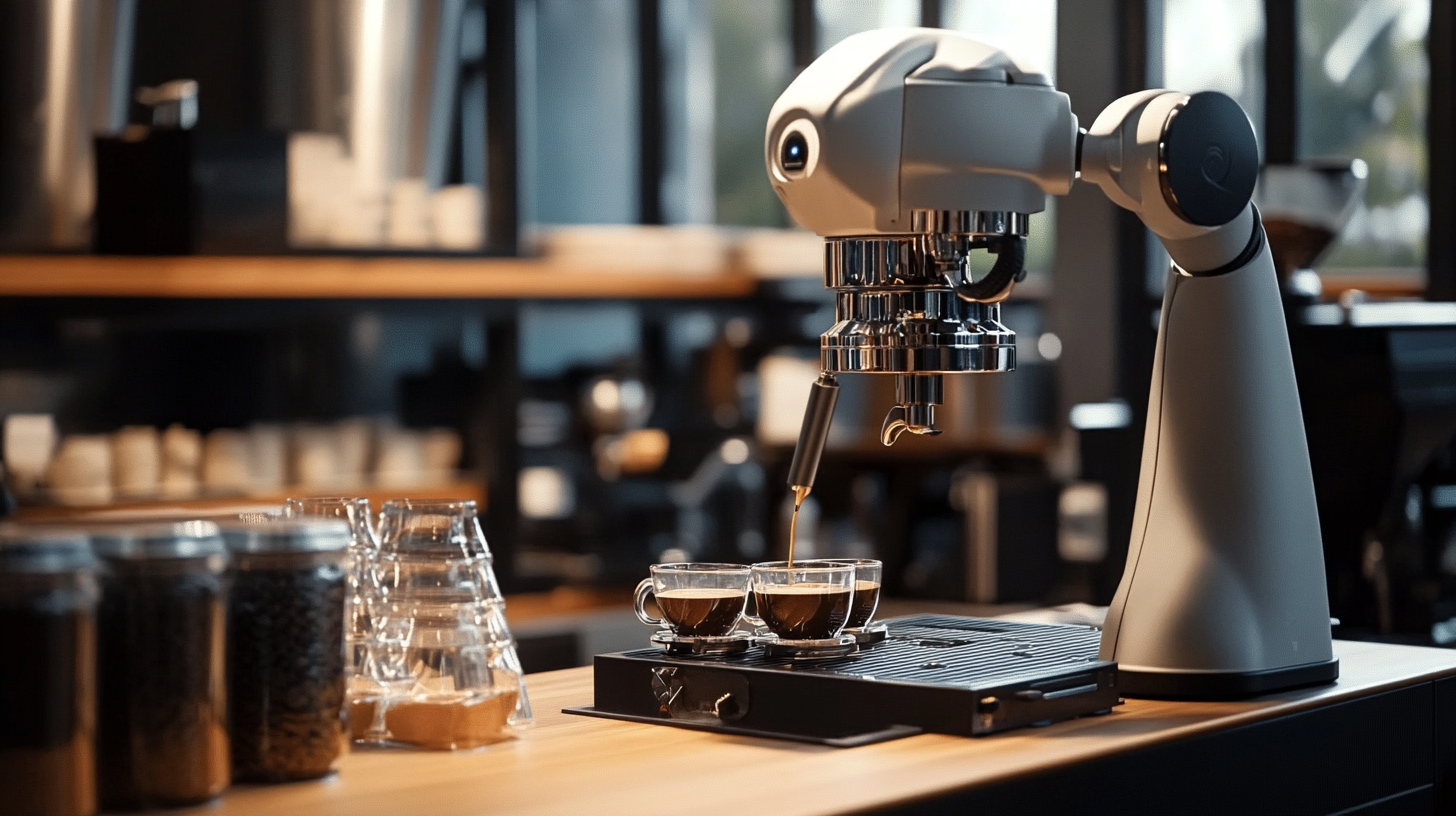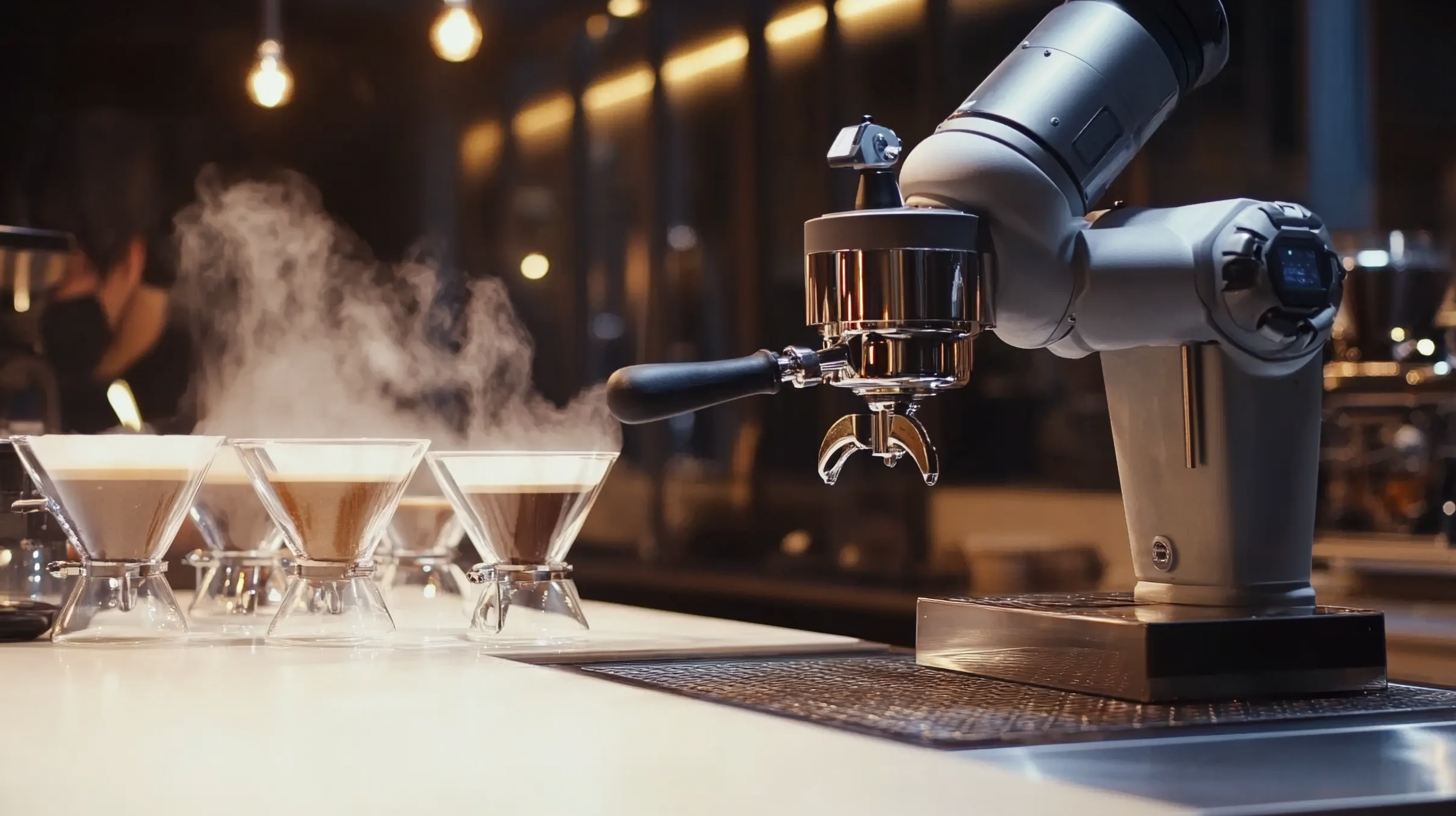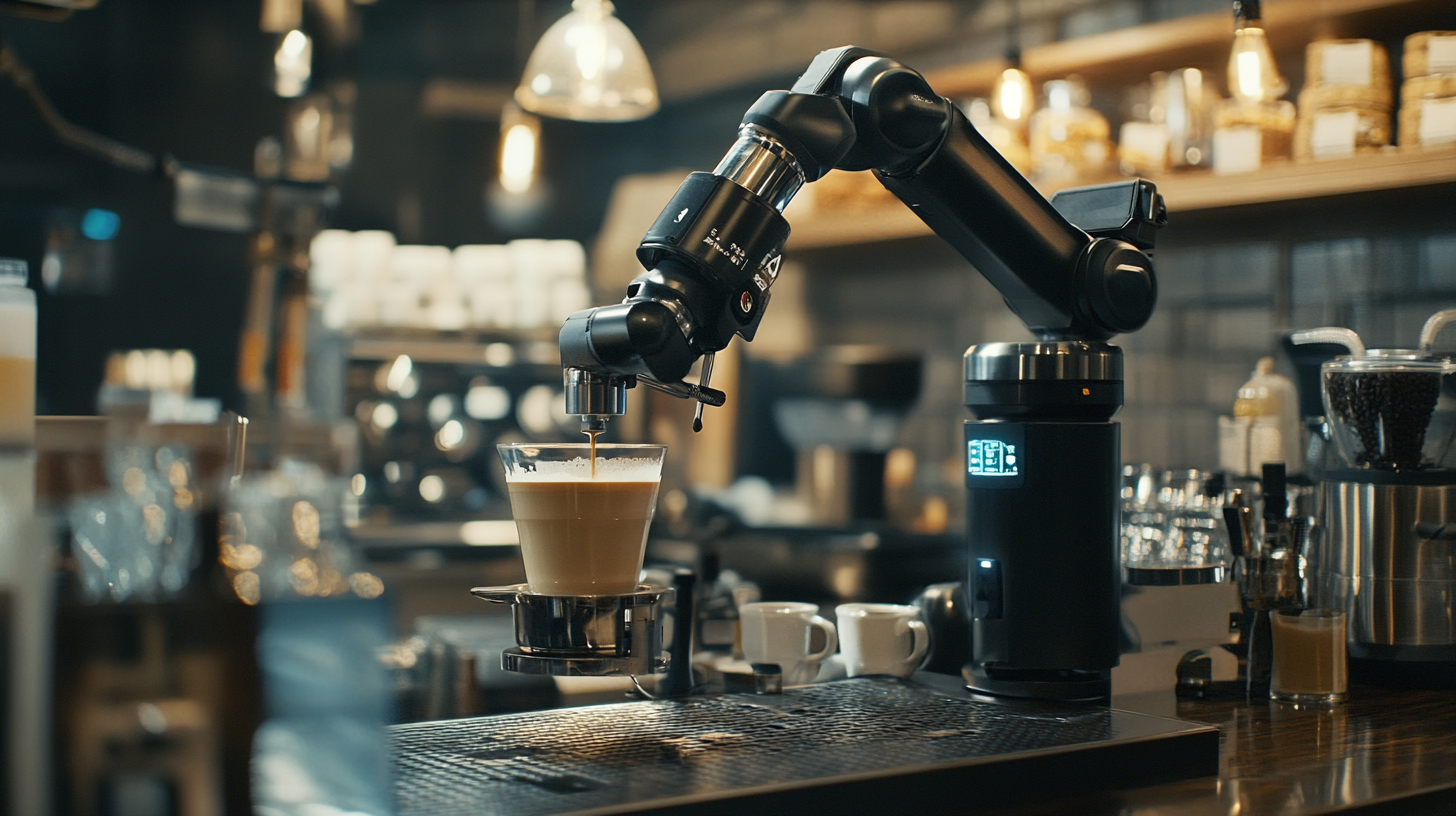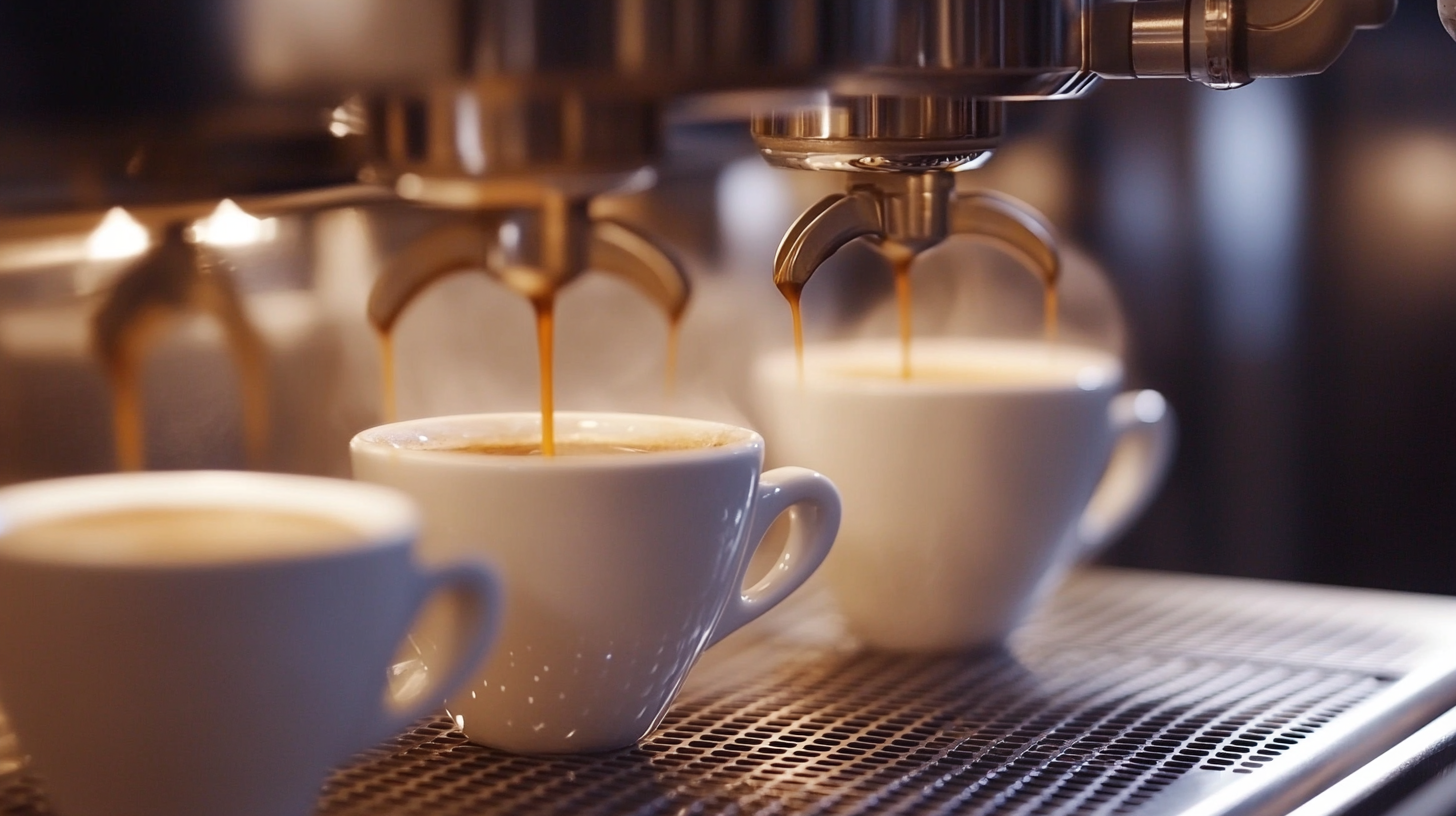Mastering the Future of Coffee Brewing with Robot Arm Technology
In recent years, the coffee brewing experience has undergone a transformative shift, propelled by the advent of cutting-edge technologies. Among these innovations, "Robot Arm Coffee" stands out as a groundbreaking approach that combines precision engineering with the art of coffee preparation. As enthusiasts and coffee connoisseurs alike seek the perfect cup, the integration of robotic systems into the brewing process offers a tantalizing glimpse into the future of how we enjoy our daily brew.
This blog delves into the captivating world of robot arm technology and its applications in coffee brewing. From achieving consistent flavor profiles to optimizing brewing times and temperatures, the precision of robotic arms ensures that every cup is crafted to perfection. Join us as we explore how "Robot Arm Coffee" is not just about convenience but is also redefining the coffee culture, paving the way for an exciting evolution in our favorite beverage ritual.

The Evolution of Coffee Brewing: From Manual Techniques to Robotics
The evolution of coffee brewing has undergone significant transformations over the centuries, remarkably shifting from manual techniques to the integration of advanced robotics. Historically, coffee brewing was a meticulous manual process, often reliant on skilled baristas. According to a report by the Specialty Coffee Association, as of 2021, the global coffee market grew to over $100 billion, highlighting the increasing consumer demand for quality and consistency in coffee preparation. This consumer preference prompted innovations aimed at enhancing the brewing experience. In recent years, robotic technologies have begun to redefine how coffee is brewed. Automated machines equipped with precision brewing algorithms not only maintain consistency but also allow for the customization of beverage profiles. According to a market research report by Grand View Research, the coffee machine market, including robotic systems, is projected to reach $19.16 billion by 2025, showcasing the pivotal role automation plays in meeting modern coffee enthusiasts' expectations. With the rise of robot arm technology, coffee making has entered an era where precision meets creativity, offering unique flavor manipulation capabilities that were previously unattainable. Furthermore, robotics brings about efficiency in coffee shops and businesses, minimizing wait times and enabling baristas to focus on customer engagement and higher-level tasks. Many cafes are beginning to adopt these technologies not only to enhance service quality but also to maintain competitiveness in a rapidly evolving market. The trend of blending art with science in coffee brewing reflects a broader movement towards automation in the food and beverage industry, underpinning a new standard for coffee experiences that marries tradition with innovation.

Understanding Robot Arm Technology in the Coffee Industry
In recent years, the coffee industry has been rapidly evolving with the integration of robot arm technology, transforming how beverages are prepared and served. Startups have emerged, harnessing the capabilities of robotic systems to create faster and more efficient coffee brewing experiences. One notable company based in Seattle is pioneering this revolution, utilizing robotic arms to craft everything from lattes to espressos, making coffee-making not just a skill but an art enhanced by technology.
The innovations in this space are impressive, with some robotic arm systems featuring multiple articulating joints that enable them to mimic the precise movements of a skilled barista. In San Francisco, a new automated café showcases a robotic arm that handles the detailed assembly of coffee drinks, emphasizing efficiency without compromising the quality of the brew. These robotic units operate with high precision, employing advanced technology to ensure each cup is prepared consistently, catering to the growing demand for specialty coffee.
Furthermore, the advent of sophisticated systems equipped with computer vision is bridging the gap between traditional barista craftsmanship and automated convenience. Such technology not only improves the speed of service but also enhances the overall customer experience by providing an interactive and engaging environment. As these robotic coffee solutions continue to evolve, they carry the potential to reshape our coffee culture, blending artisanal skills with technological advancements to produce an unprecedented brewing experience.

Enhancing Precision and Consistency in Coffee Brewing with Automation
The coffee brewing process has long been regarded as an art, requiring a keen understanding of various variables, from water temperature to grind size. However, with advancements in robot arm technology, this intricate craft is becoming more automated, which enhances precision and consistency in brewing. By using expertly calibrated robotic arms, coffee enthusiasts can now ensure that each cup they brew meets rigorous standards, eliminating common inconsistencies that plague traditional brewing methods.
These robotic systems are capable of performing repetitive tasks with remarkable accuracy, adjusting parameters in real-time to adapt to different coffee beans and recipes. For instance, the robot can weigh the coffee grounds with precision, control the water flow rate, and monitor temperature—all key factors that affect the flavor profile of the final brew. The result is a consistent cup of coffee that captures the nuanced flavors intended by the roaster, demonstrating that automation can not only replicate human techniques but also enhance them.
Moreover, the integration of robot arm technology into coffee brewing opens up opportunities for innovation in the café environment. Baristas can focus on creativity and customer engagement while the robots handle the repetitive tasks, allowing for a more streamlined workflow. This synergy between human skill and robotic efficiency could revolutionize the coffee industry, making high-quality brews more accessible to coffee lovers everywhere. As this technology evolves, we can expect to see coffee brewing transform into a seamless blend of art and precision, redefining what it means to enjoy the perfect cup of coffee.

The Future Landscape of Coffee Shops: Robots as Baristas
As the café industry continues its evolution, the emergence of robotic baristas marks a significant shift in how coffee is brewed and served. Recent developments, such as the unveiling of the COFE+ coffee kiosk in Madrid and the robot barista in Oakland, illustrate a growing trend where advanced technology meets traditional coffee culture. These innovative machines are poised to redefine customer experiences in coffee shops, offering precision brewing and consistent quality that human baristas, despite their skills, may find hard to match.
The introduction of these robot baristas is not merely about efficiency; it brings forth a revolution in how cafés operate. In settings like the "black factory" model—a concept emerging from intelligent manufacturing—robots are expected to streamline the entire coffee-making process, from preparation to serving. Events like the Shanghai International Hotel and Catering Expo and the World Intelligent Congress showcase these developments, highlighting the increasing integration of robotics within the coffee industry. The deep intelligence embedded within these machines enables them to serve complex and personalized orders rapidly, capturing the attention of patrons and setting a new standard for the café experience.
Furthermore, the impact of robotic technology transcends just the operational aspects of coffee shops. It invites a cultural shift where the human touch in coffee making is counterbalanced by technological innovation. As robots take on routine tasks, baristas may find themselves elevating customer interactions to a more artisanal level, focusing on creativity and customer engagement. Such a transformation promises a reimagined future for coffee shops, where technology complements the artistry of brewing coffee, creating a hybrid atmosphere that celebrates both tradition and innovation.
Challenges and Innovations in Integrating Robot Arms into Coffee Brewing Processes
The integration of robot arm technology into coffee brewing processes presents both fascinating innovations and notable challenges. As coffee enthusiasts seek to enhance their brewing experience, the application of robotic systems promises precision and consistency. The use of robotic arms can revolutionize how coffee is brewed, allowing for precise measurements of ingredients, optimal extraction times, and controlled temperatures. This can lead to a consistently high-quality cup of coffee that appeals to both casual drinkers and connoisseurs alike.
However, incorporating these advanced technologies into existing brewing architecture involves several significant hurdles. One of the primary challenges is ensuring that the robot arms can interact seamlessly with traditional coffee machines, which often lack standardized interfaces. Furthermore, calibrating robots to achieve the perfect grind size or steeping time requires advanced programming and artificial intelligence capabilities. There's also the issue of cost, which can be a deterrent for smaller cafés and artisan coffee brewers who may not have the resources to invest in such technology.
Additionally, there is the challenge of maintaining the human element in coffee brewing. Many consumers cherish the art and ritual associated with making coffee, which can be lost in a fully automated process. Striking a balance between technological innovation and the personal touch that coffee lovers value will be essential for the successful integration of robot arms in this domain. As the industry continues to evolve, addressing these challenges will pave the way for a future where technology and tradition coexist harmoniously in the coffee brewing landscape.

